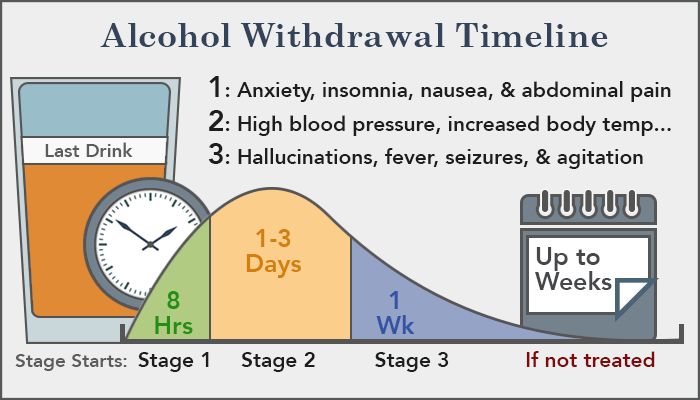Alcohol use disorder, moderate to severe (alternative agent)
Question Is gabapentin efficacious in the treatment of alcohol use disorder in adults with a history of alcohol withdrawal symptoms?
Findings In this randomized clinical trial, gabapentin compared with placebo significantly increased the number of people with total abstinence and reduced drinking. This effect was most significantly observed in those with greater pretreatment alcohol withdrawal symptoms—41% of participants with high alcohol withdrawal symptoms had total abstinence on gabapentin compared with 1% of participants in the placebo arm.
Meaning This study showed that gabapentin is efficacious in promoting abstinence and reducing drinking in individuals with alcohol use disorder and especially so in those with more alcohol withdrawal symptoms.
Data from randomized, double-blind, placebo-controlled studies support the use of gabapentin in the maintenance of abstinence in patients with alcohol use disorder.

Based on the American Psychiatric Association (APA) guidelines for the pharmacological treatment of patients with alcohol use disorder, gabapentin is suggested for patients with alcohol use disorder (moderate to severe) who want to decrease or abstain from use of alcohol and either prefer gabapentin or are unable to tolerate or are unresponsive to naltrexone and acamprosate .
Based on the VA/DoD clinical practice guideline for the management of substance use disorders, gabapentin given for moderate to severe alcohol use disorder is effective and suggested when first-line pharmacotherapy is contraindicated or ineffective.
Alcohol withdrawal, mild (alternative agent)
Data from a randomized, double-blind, active-controlled study support the use of gabapentin in the treatment of alcohol withdrawal.
Based on the VA/DoD clinical practice guideline for the management of substance use disorders, gabapentin given for mild alcohol withdrawal is effective and suggested when the risk of benzodiazepines outweigh the benefits (eg, inadequate monitoring available, abuse liability, contraindication, adverse reaction).
Importance Although an estimated 30 million people meet criteria for alcohol use disorder (AUD), few receive appropriate pharmacotherapy. A more personalized, symptom-specific, approach might improve efficacy and acceptance.
Objective To examine whether gabapentin would be useful in the treatment of AUD, especially in those with the most alcohol withdrawal symptoms.
Design, Setting, and Participants This double-blind randomized clinical trial conducted between November 2014 and June 2018 evaluated gabapentin vs placebo in community-recruited participants screened and treated in an academic outpatient setting over a 16-week treatment period. A total of 145 treatment-seeking individuals who met Diagnostic and Statistical Manual of Mental Disorders (Fifth Edition) criteria for AUD and were not receiving other AUD intervention were screened, and 96 who also met recent alcohol withdrawal criteria were randomized to treatment after 3 abstinent days. Daily drinking was recorded, and percentage of disialo carbohydrate-deficient transferrin in the blood, a heavy drinking marker, was collected at baseline and monthly during treatment.
Interventions Gabapentin up to 1200 mg/d, orally, vs placebo along with 9 medical management visits (20 minutes each).
Main Outcomes and Measures The percentage of individuals with no heavy drinking days and those with total abstinence were compared between treatment groups and further evaluated based on prestudy alcohol withdrawal symptoms.
Results Of 96 randomized individuals, 90 were evaluable (44 in the gabapentin arm and 46 in the placebo arm), with a mean (SD) age of 49.6 (10.1) years; 69 were men (77%) and 85 were white (94%). The evaluable participants had 83% baseline heavy drinking days (4 or more drinks/day for women, 5 or more for men) and met 4.5 alcohol withdrawal criteria from the Diagnostic and Statistical Manual of Mental Disorders (Fifth Edition). More gabapentin-treated individuals had no heavy drinking days (12 of 44 participants [27%]) compared with placebo (4 of 46 participants [9%]), a difference of 18.6% (95% CI, 3.1-34.1; P = .02; number needed to treat [NNT], 5.4), and more total abstinence (8 of 44 [18%]) compared with placebo (2 of 46 [4%]), a difference of 13.8% (95% CI, 1.0-26.7; P = .04; NNT, 6.2). The prestudy high–alcohol withdrawal group had positive gabapentin effects on no heavy drinking days (P < .02; NNT, 3.1) and total abstinence (P = .003; NNT, 2.7) compared with placebo, while within the low–alcohol withdrawal group, there were no significant differences. These findings were similar for other drinking variables, where gabapentin was more efficacious than placebo in the high–alcohol withdrawal group only. Gabapentin caused more dizziness, but this did not affect efficacy. [1]
Conclusions and Relevance These data, combined with others, suggest gabapentin might be most efficacious in people with AUD and a history of alcohol withdrawal symptoms. Future studies should evaluate sleep changes and mood during early recovery as mediators of gabapentin efficacy.
